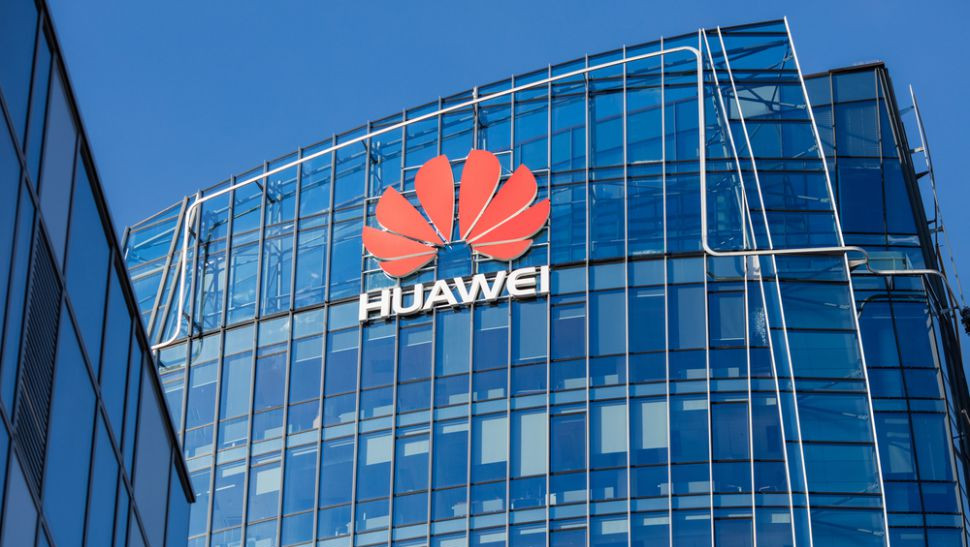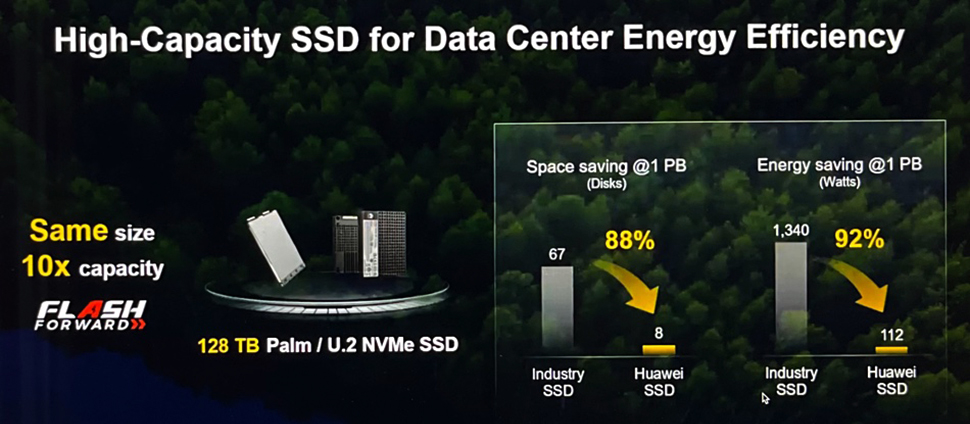
Storage is a major concern for business struggling to back up and manage all of the data they generate - a situation not helped by the arrival of generative AI which has massively disrupted traditional storage solutions.
Huawei’s answer to this problem is its OceanStor A800 NAS device. Originally unveiled last year, Huawei showed it off properly to assembled European journalists and partners at the recent Innovative Data Infrastructure (IDI) Forum 2024 in Berlin.
As we reported, the OceanStor A800 is capable of 24 million IOPS per controller enclosure, delivering ten-times the performance of existing storage, and ten-times the data mobility. It supports bandwidth in PB/s and 100 million IOPS, and, according to Huawei, offers 99.9999% data reliability.
Exclusive to OceanStor A800 NAS
For now, storage for the OceanStor A800 comes in the form of 30 and 50TB SSDs, but that will change when the company introduces a 128TB SSD next year. Huawei said its massive new internal drive, teased previously but officially unveiled at IDI Forum 2024, will “consume 88% less storage space and 92% less energy than the peer vendor’s SSDs when storing every one PB of data.” Exactly who the "peer vendor" is wasn't revealed.
Michael Fan, Huawei Data Storage marketing VP, told Blocks & Files these new SSDs “will use a mix of TLC and QLC flash to optimize capacity and drive lifetime. They have a Huawei-developed controller and come in U.2 and palm-size physical formats.” The site also noted that “The palm-size format is thinner than a U.2 SSD and could be either longer or shorter than that format. It appears to be similar to the EDSFF E3.S format but Huawei does not use EDSFF nomenclature.”
Although Huawei hasn’t said too much about the 128TB SSDs, or the proprietary technology behind them, it seems likely that they will be used exclusively in its OceanStor A800 NAS device for now, although it's possible it may become more widely available in the future.

More from TechRadar Pro
- These are the best SSDs available to buy right now
- Huawei has a game-changing 10 Petabyte storage product
- 1200TB SSD modules are in the pipeline thanks to Pure Storage







